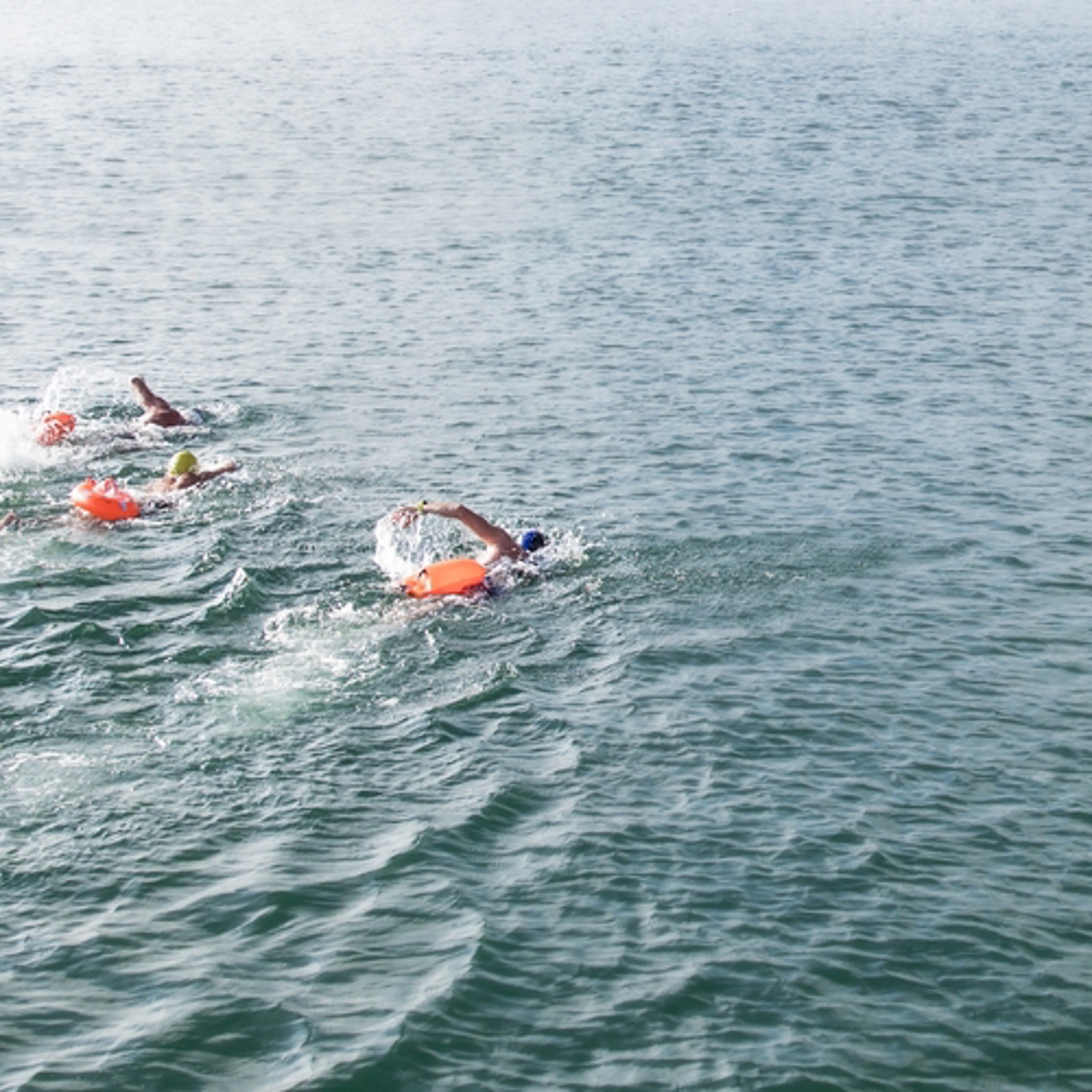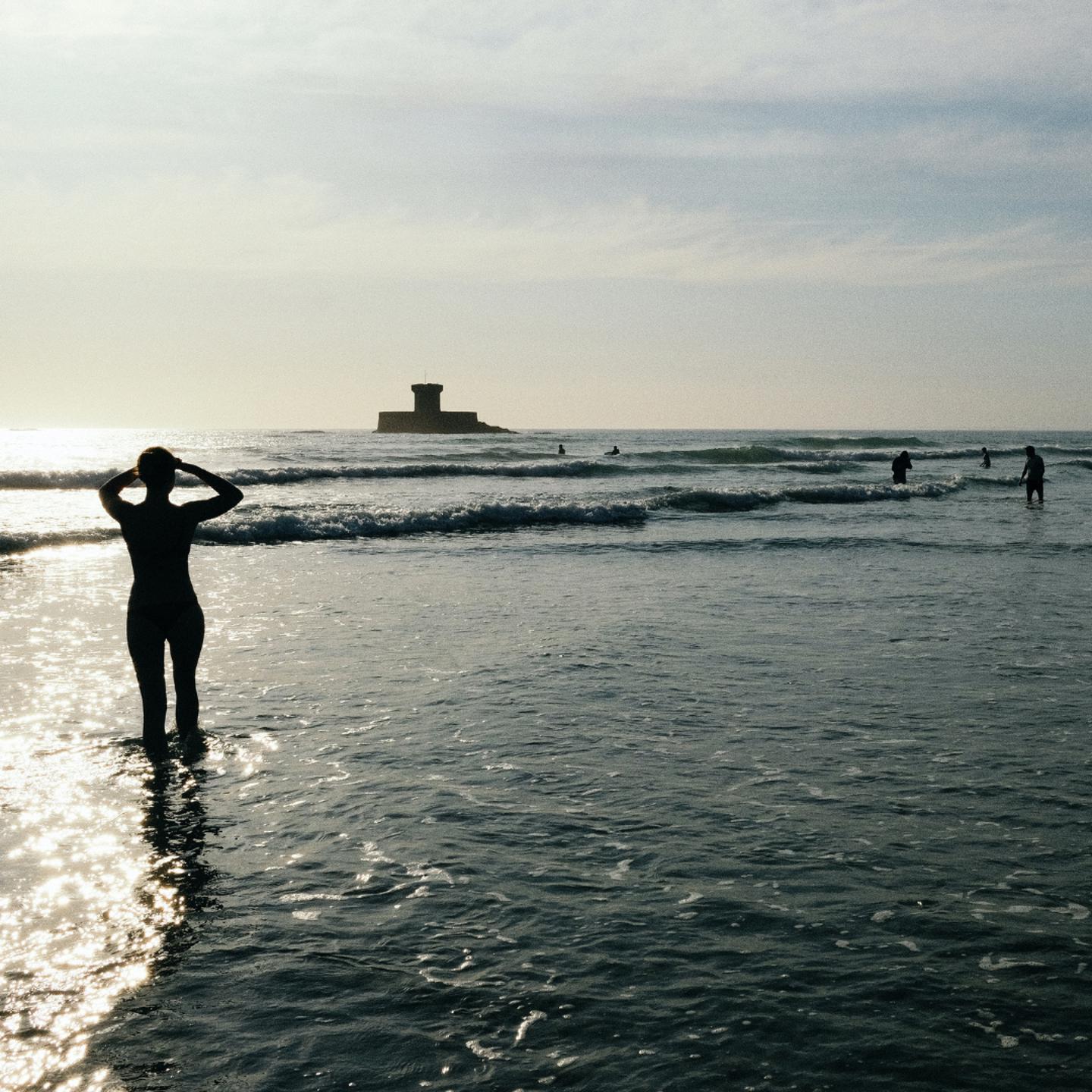If you’re swapping the swimming pool for the sea or just enjoying a quick dip, here’s how you can safely enjoy your swim:
Check the weather and tides
Always check the weather forecast and sea conditions before you set off. If you’re planning to be out for a long time, get regular updates. Change your plans or cancel the trip if the forecast is not safe. If you don’t feel safe, don’t go out.
It’s best to choose a lifeguarded beach and swim between the red and yellow flags. List of Jersey’s lifeguarded beaches from RNLI.
The pool at Havre des Pas has lifeguards on duty during the weekends of June and July, and the school summer holidays from 10am to 6pm daily.

If you choose a spot with no lifeguard cover, make sure that you know the below before getting into the sea:
- Where to enter and exit the water
- Are there any hazards?
- What the tide and currents are doing
How to spot rip currents and what to do if you get caught in one.

Make sure you tell someone where you are going for a swim and what time you expect to be back.
What to take:
- Wear a brightly coloured swimming hat and take a tow float with you, this will help you to be seen in the water, the tow float can also act as extra buoyancy if you need it.
- If you have a wet suit, wear it. It will help you to stay warm and can increase your buoyancy.
- Always take a means of calling for help with you, such as a mobile phone in a waterproof case, or a whistle to attract attention.
- Take a friend with you. Open water swimming is much more fun with someone else, and you can look out for each other, even if they don’t get in the water with you as they’ll be able to call for help if you are overdue back.
Even if you have checked the sea conditions and weather before getting to your location, before you enter the sea, assess the conditions again. If the water is too rough for swimming, don’t get in.

Getting in the water:
- Enter the water slowly: allow time for your body to get used to the cold. To help yourself acclimatise, splash the cold water on your neck and face and put your hands in the water. Never jump or dive straight in as this could cause cold water shock.
- Once in the water, stay within your depths and swim parallel to the shore. The wind can also push you off course, so keep an eye on your exit point and make sure that you can swim back to it. Cold water immersion can affect your swimming ability.
Going for a swim in cold water can be exhilarating but be aware of the risks.
Why not take part in 30 Bays in 30 Days? Registration is now open, get outdoors and enjoy Jersey’s beautiful beaches, while also raising money for two loved, local charities. Register here.

